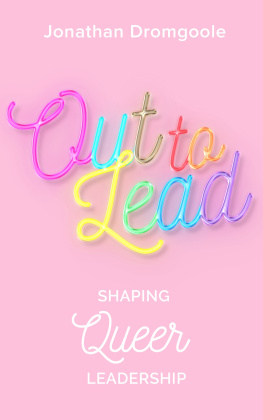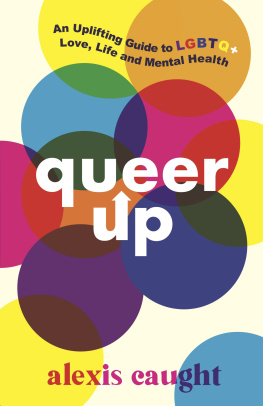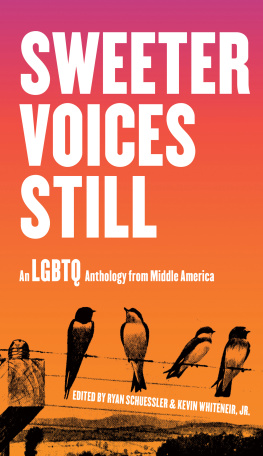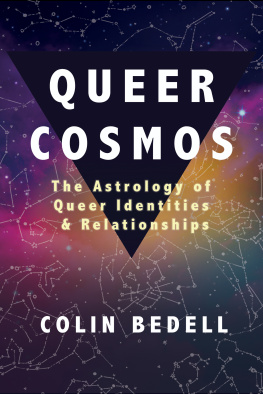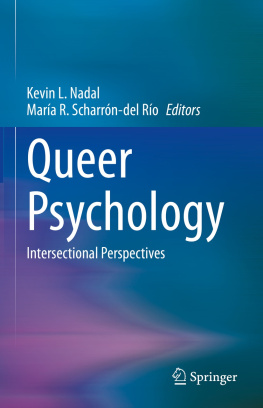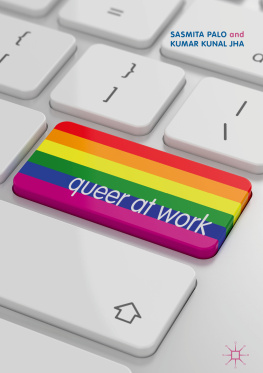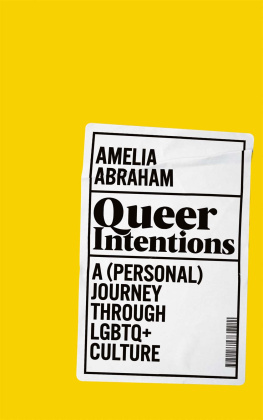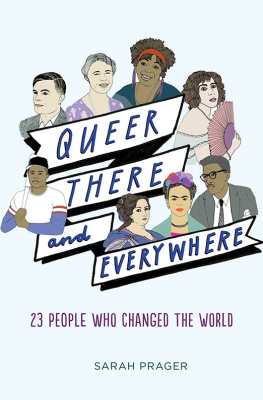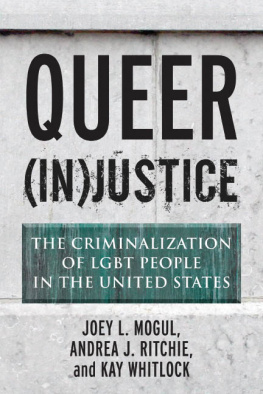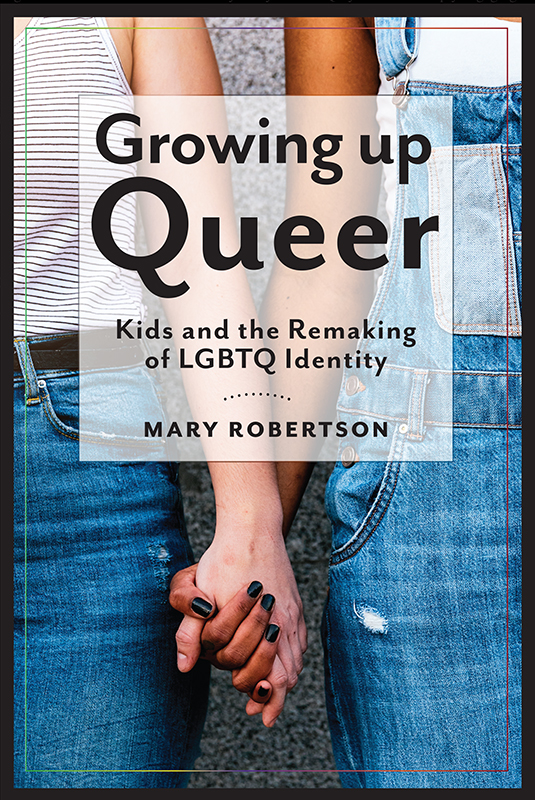
Growing Up Queer
Critical Perspectives on Youth
General Editors: Amy L. Best, Lorena Garcia, and Jessica K. Taft
This series aims to elaborate a set of theoretical and methodological tenets for a distinctive critical youth studies approach rooted in empirical inquiry. The series draws upon the following as some of the key theoretical elements of critical approaches: the socially constructed nature of childhood and adolescence over and against the universalizing and naturalizing propensities of early developmental theory; the centering of young peoples social worlds and social locations as the starting point for analysis; exploration of how the meaning and experience of youth is shaped by other important axes of social difference, including but not limited to race, class, gender, place, nation, and sexuality; the recognition that youths worlds are constituted through multiple processes, institutions, and discourses and that central to understanding youth identity and experience is understanding social inequalities; engagement with the dynamics of global transformation in the experience of childhood and youth; and the relevance of these elements for policy and practice.
Books in the series:
Fast-Food Kids: French Fries, Lunch Lines, and Social Ties
Amy L. Best
White Kids: Growing Up with Privilege in a Racially Divided America
Margaret A. Hagerman
Growing Up Queer: Kids and the Remaking of LGBTQ Identity
Mary Robertson
Growing Up Queer
Kids and the Remaking of LGBTQ Identity
Mary Robertson

NEW YORK UNIVERSITY PRESS
New York
NEW YORK UNIVERSITY PRESS
New York
www.nyupress.org
2019 by New York University
All rights reserved
References to Internet websites (URLs) were accurate at the time of writing. Neither the author nor New York University Press is responsible for URLs that may have expired or changed since the manuscript was prepared.
Library of Congress Cataloging-in-Publication Data
Names: Robertson, Mary, author.
Title: Growing up queer : kids and the remaking of LGBTQ identity / Mary Robertson.
Description: New York : New York University Press, [2019] | Series: Critical perspectives on youth | Includes bibliographical references and index.
Identifiers: LCCN 2018020939| ISBN 9781479879601 (cl : alk. paper) | ISBN 9781479876945 (pb : alk. paper)
Subjects: LCSH : Sexual minority youthUnited States. | Gay youthUnited States. | Sexual minoritiesIdentity. | GaysIdentity.
Classification: LCC HQ76.27.Y68 R63 2019 | DDC 306.7608350973dc23
LC record available at https://lccn.loc.gov/2018020939
New York University Press books are printed on acid-free paper, and their binding materials are chosen for strength and durability. We strive to use environmentally responsible suppliers and materials to the greatest extent possible in publishing our books.
Manufactured in the United States of America
10 9 8 7 6 5 4 3 2 1
Also available as an ebook
For Patrick, whose generosity of time and spirit has touched so many lives
Contents
A Whole Lot of Queer
And then I finally went there, and it was all colorful and magical. Full of hope.... And then, I remember just the queerness of it. Like, seeing genderqueers and butches and flaming gay guys, it was just a whole lot of queer.... I feel like this is like my family here. Like literally, my family. I havent felt this close with people ever in my life [laughs]. I come here and you feel the love, you feel the energy, everyone knows everyone.... The only time and space in my life where I actually get to truly relax and enjoy myself and the people around me and just laugh.
Zia, nineteen-year-old, identifies as queer, racially mixed, and Black, describing her first visit to Spectrum at fifteen years old
In September 2010, I visit The Resource, the LGBTQ center in my community, for the first time. It has quite literally just opened its doors at its new location.The street is busy with cars, buses, bicyclists, and pedestrians twenty-four hours a day.
I arrive in the heat of the afternoon sun and wait in the parking lot in front of the building to meet my friend, Michael, who volunteers at SpectrumThe Resources LGBTQ youth drop-in center. Ive asked Michael to introduce me to Spectrum with the intention of it being a field site for some exploratory research Im doing on vulnerable youth and sexuality. Today Ill see the space, meet some of the staff and youth, and get the chance to pitch my project to the program manager. Im a little bit nervous, hesitating to go in by myself without Michael. Ive never been to The Resource or Spectrum before, mainly because Im not gay. I am relatively familiar with the organization as a community resource, but I simply never had a reason to come here before. As I wait I become aware of how, simply by being here, others are likely to think I am gay. This brief foray outside my bubble of hetero privilege gets me thinking about all of the ways we attribute sexual orientation or identity onto others, association with queer organizations being but one. It also occurs to me that, owing to the stigma attached to queer spaces, it must not be easy for a young person, in the midst of trying to figure out their sexuality, to come here for the first time. Now that I am here, the thought of entering a room full of teenagers is kind of giving me a heart attack. It feels a bit like the first day at a new school. Will the kids like me? Will I fit in? Am I wearing the right thing? Will they trust me? This anxiety about belonging, intention, and trust will inform much of my time here at Spectrum over the next few years.
I am profoundly self-conscious of my own sexual orientation as I embark on this project. I was a womens studies major and feminist activist in college when I first began, in earnest, the lifelong process of reckoning with my privilege, a process that has made me hyper aware of my identities and how I present in various identity-based groups and that leads me to always question my actions, thoughts, and assumptions. On my college campus I organized against war, racism, homophobia, and sexism alongside LGBTQ-identified friends and colleagues. But I know enough about how privilege works to understand that no matter how conscious I am, as a person living with multiple intersecting forms of privilege Im still likely to reproduce inequality as often as I succeed at dismantling it. I am very anxious about entering an LGBTQ space as a person with heterosexual and cisgender privilege with the intention of conducting research, so much so that when I fill out the paperwork to become a volunteer and email it to the program manager, I mention that I had been awarded the Ally of the Year Award by the Pride center in college. To me, this award is proxy for my LGBTQ credentials.
My anticipation is not due to being unfamiliar with LGBTQ-identified people and spaces. Nor am I uncomfortable with being labeled LGBTQ. Given my somewhat butch self-presentation, my feminist activist identity, and my general disdain for traditional gender roles, I am likely often assigned that label by others regardless. Yet, much like when a lesbian friend of mine in college christened me an honorary lesbian, my anxiety stems from a sense of being down for the cause but not quite belonging. This old, familiar feeling stewed in me as I waited for Michael in the parking lot. As well intentioned as it was, the honorary lesbian title always rubbed me the wrong way because I didnt need to be a lesbian to embrace what it means to be queer. Yet, as a ciswoman involved in a long-term intimate partnership with a man, I could in no way claim an authentic lesbian (or LGBTQ) identity.
Next page


